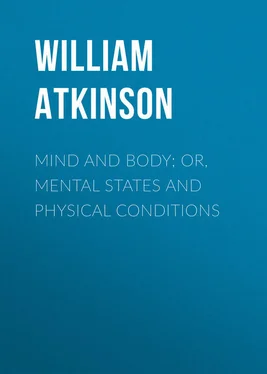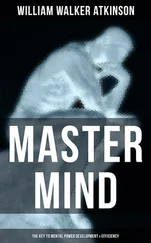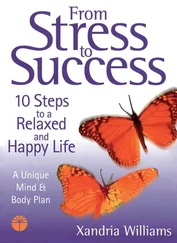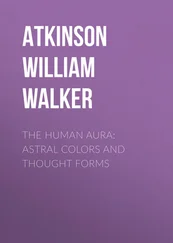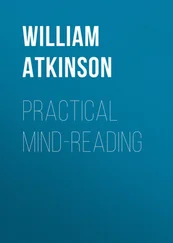William Atkinson - Mind and Body; or, Mental States and Physical Conditions
Здесь есть возможность читать онлайн «William Atkinson - Mind and Body; or, Mental States and Physical Conditions» — ознакомительный отрывок электронной книги совершенно бесплатно, а после прочтения отрывка купить полную версию. В некоторых случаях можно слушать аудио, скачать через торрент в формате fb2 и присутствует краткое содержание. Жанр: foreign_antique, foreign_prose, на английском языке. Описание произведения, (предисловие) а так же отзывы посетителей доступны на портале библиотеки ЛибКат.
- Название:Mind and Body; or, Mental States and Physical Conditions
- Автор:
- Жанр:
- Год:неизвестен
- ISBN:нет данных
- Рейтинг книги:3 / 5. Голосов: 1
-
Избранное:Добавить в избранное
- Отзывы:
-
Ваша оценка:
- 60
- 1
- 2
- 3
- 4
- 5
Mind and Body; or, Mental States and Physical Conditions: краткое содержание, описание и аннотация
Предлагаем к чтению аннотацию, описание, краткое содержание или предисловие (зависит от того, что написал сам автор книги «Mind and Body; or, Mental States and Physical Conditions»). Если вы не нашли необходимую информацию о книге — напишите в комментариях, мы постараемся отыскать её.
Mind and Body; or, Mental States and Physical Conditions — читать онлайн ознакомительный отрывок
Ниже представлен текст книги, разбитый по страницам. Система сохранения места последней прочитанной страницы, позволяет с удобством читать онлайн бесплатно книгу «Mind and Body; or, Mental States and Physical Conditions», без необходимости каждый раз заново искать на чём Вы остановились. Поставьте закладку, и сможете в любой момент перейти на страницу, на которой закончили чтение.
Интервал:
Закладка:
Dr. Schofield says: “The vis medicatrix naturae is a very potent factor in the amelioration of disease, if it only be allowed fair play. An exercise of faith, as a rule, suspends the operation of adverse influences, and appeals strongly through the consciousness, to the inner and underlying faculty of vital force ( i. e. , unconscious mind).” Dr. Bruce says: “We are compelled to acknowledge a power of natural recovery inherent in the body – a similar statement has been made by writers on the principle of medicine in all ages… The body does possess a means and mechanism for modifying or neutralizing influences which it cannot directly overcome.” Oliver Wendell Holmes says: “Whatever other theories we hold we must recognize the ‘ vis medicatrix naturae ’ in some shape or other.” Bruce says: “A natural power of the prevention and repair of disorders and disease has as real and as active an existence within us, as have the ordinary functions of the organs themselves.” Hippocrates said: “Nature is the physician of diseases.” And Ambrose Pare wrote on the walls of the great medical school, the Ecole de Medicine of Paris, these words: “ Je le ponsez et Dieu le guarit ,” which translated is: “I dressed the wound, and God healed it.”
It is of course true that the life and mind in the cells is derived from the Subconscious Mind, in fact the cells themselves may be said to embody the Subconscious Mind, just as the cells of the brain embody the Conscious Mind. In every cell there is to be found intelligence in a degree required for the successful performance of the particular task of that cell. Hudson says: “All organic tissue is made up of microscopic cells, each one of which is a living, intelligent entity .” And, again, “The subordinate intelligences are the cells of which the whole body is composed, each of which is an intelligent entity, endowed with powers commensurate with its functions .” In short, the cells of the body are living organs for the expression and manifestation of the Subconscious Mind . There is not a single cell, group, or part of the party which is devoid of mind. Mind is imminent in the entire body, and in its every part, down to the smallest cell.
The following quotation from Dr. Thomson J. Hudson’s “Mental Medicine” clearly expresses a truth conceded by modern science. Dr. Hudson says:
“It follows a priori , that every cell in the body is endowed with intelligence; and this is precisely what all biological science tells us is true. Beginning with the lowest form of animal life, the humblest cytode, every living cell is endowed with a wonderful intelligence. There is, in fact, no line to be drawn between life and mind; that is to say, every living organism is a mind organism, from the monera, crawling upon the bed of the ocean, to the most highly differentiated cell in the cerebral cortex of man. Volumes have been written to demonstrate that ‘psychological phenomena begin among the very lowest class of beings; they are met with in every form of life, from the simplest cellule to the most complicated organism. It is they that are the essential phenomena of life, inherent in all protoplasm.’ (Binet.) It is, in fact, an axiom of science that the lowest unicellular organism is endowed with the potentialities of manhood. I have remarked that each living cell is endowed with a wonderful intelligence. This is emphatically true, whether it is a unicellular organism or a constituent element of a multicellular organism. Its wonderful character consists not so much in the amount of intelligence possessed by each individual cell, as it does in the quality of that intelligence. That is to say, each cell is endowed with an instinctive, or intuitive, knowledge of all that is essential to the preservation of its own life, the conservation of its energies, and the perpetuation of its species. In other words, it is endowed with an intuitive knowledge of the laws of its own being, which knowledge is proportioned to its stage of development and adapted to its environment.”
The cell has the intelligence sufficient to enable it to seek nourishment, and to move from one place to another in search for food or for other purposes. It holds to its food when secured, and envelops it until it is absorbed and digested. It exercises the power of choice, accepting and selecting one portion of food in preference to another. It has the power of discriminating between nourishing food and the reverse. The authorities show that it has a rudimentary memory, and avoids the repetition of an unpleasant or painful experience, and also returns to the locality in which it has previously secured food. Biological experiments have shown that the cells are capable of experiencing surprise, pleasure and fear, and that they experience different degrees of feeling, and react accordingly in response to stimuli. Verworn, a biologist, even goes so far as to assert that they habitually adapt means to ends, near and remote. In his remarkable work on cell-life, “The Psychic Life of Micro-organisms,” Binet says: “We shall not regard it as strange, perhaps, to find so complete a psychology in the history of the lower organisms, when we call to mind that, agreeably to the ideas of evolution now accepted, a higher animal is nothing more than a colony of protozoans. Every one of the cells composing such an animal has retained its primitive properties, giving them a higher degree of perfection by division of labor and by selection. The epithelial cells that secrete the nails and hair are organisms perfected with reference to the secretion of protective parts. Similarly, the cells of the brain are organisms that have been perfected with reference to psychical attributes.”
Dr. Schofield says: “That life involves mind has, of course, like all else, been vigorously disputed and equally vigorously affirmed. ‘Life,’ says Prof. Bascom, ‘is not force; it is combining power. It is the product and presence of mind. ’ … The extent to which the word mind may be employed as the inherent cause of purposive movements in organisms is a very difficult question to solve. There can be no doubt that the actual agents in such movements are the natural forces, but behind these the directing and starting power seems to be psychic… There being an indwelling power, not only for purposive action in each cell, but for endless combinations of cell activities for common ends not at all connected with the mere nutrition of the single cell, but for the good of the completed organism.” Dr. R. Dunn says: “From the first movement when the primordial cell-germ of a human organism comes into being, the entire individual is present, fitted for human destiny. From the same moment, matter, life and mind are never for an instant separated, their union constituting the essential work of our present existence.” Carpenter says: “The convertibility of physical forces and correlation of these with the vital and the intricacy of that nexus between mental and bodily activity which cannot be analyzed, all lead upwards towards one and the same conclusion — the source of all power is mind . And that physical conclusion is the apex of the pyramid which has its foundation in the primitive instincts of humanity.”
Having seen the evidences of life and mind in the single cell, let us now proceed to a consideration of the intelligence or mind inherent and manifest in the groups of cells, large and small, including the largest groups which compose the several organs of the body. This line of investigation will lead us to a fuller understanding of the influence of the mental states upon the health or disease of the organs and parts. It will be seen that Mental Healing has a sound biological as well as a psychological basis of truth, and that it is not necessary to invade the fields of metaphysics or theology in order to find an explanation of the effect of mind over body.
Читать дальшеИнтервал:
Закладка:
Похожие книги на «Mind and Body; or, Mental States and Physical Conditions»
Представляем Вашему вниманию похожие книги на «Mind and Body; or, Mental States and Physical Conditions» списком для выбора. Мы отобрали схожую по названию и смыслу литературу в надежде предоставить читателям больше вариантов отыскать новые, интересные, ещё непрочитанные произведения.
Обсуждение, отзывы о книге «Mind and Body; or, Mental States and Physical Conditions» и просто собственные мнения читателей. Оставьте ваши комментарии, напишите, что Вы думаете о произведении, его смысле или главных героях. Укажите что конкретно понравилось, а что нет, и почему Вы так считаете.
